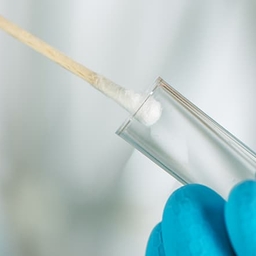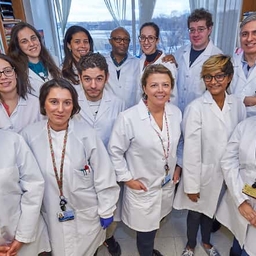Research News from CHOP

Fetal Surgery for Spina Bifida Leads to Better Mobility in School-Age Children
New findings from the latest MOMS2 analysis show prenatal repair of the spinal column confers physical gains that extend into childhood.
Study Discovers Genes Implicated in Bowel Motility Disorders
CHOP Researchers identify genetic differences in certain neuron subtypes that may affect proper bowel function.

Testing Kids for COVID-19 Up to 3 Days Before Surgery Provides Accurate Results
CHOP researchers found 100% of patients with negative COVID-19 tests up to three days before surgery were also negative at the time of surgery.
CHOP Researchers Demonstrate How Defects in Mitochondria May Lead to Autism Spectrum Disorder
Early research shows how mild defects in the “batteries” of cells in brain tissue can lead to behaviors similar to those of autism.

CHOP Researchers Develop Potentially Safer, More Effective Gene Therapy Vector for Blood Disorders
CHOP researchers have developed a gene therapy vector for sickle cell disease and other blood disorder that is potentially superior to competitors.
Newly Licensed Autistic Drivers Crash Less Than Other Young Drivers
Crash-involved autistic drivers were half as likely to crash due to speeding, but more than three times more likely to crash when making a left- or U-turn, suggesting need for tailored training
No Overall Difference in Concussion Recovery Time Seen for Male and Female Collegiate Athletes
Subtle differences in recovery times were seen in certain subgroups, but unexpected findings could indicate a path forward with more equitable allocation of health resources.
Skin-to-Skin Care Benefits Mothers and Infants in the Pediatric Cardiac ICU
CHOP researchers have found that skin-to-skin care can support mothers and their critically ill infants who have critical congenital heart disease.
CHOP Researchers Characterize Shared Pathways in Epilepsy and Autism
In a new study, CHOP researchers integrate data regarding how the conditions present clinically with data on protein-protein interactions.
Researchers Uncover A Previously Underappreciated Mechanism that Turns Off Clotting Factor in Hemophilia A
CHOP researchers identified an in vivo role for activated protein C (APC), which could potentially be exploited for future hemophilia A treatments.